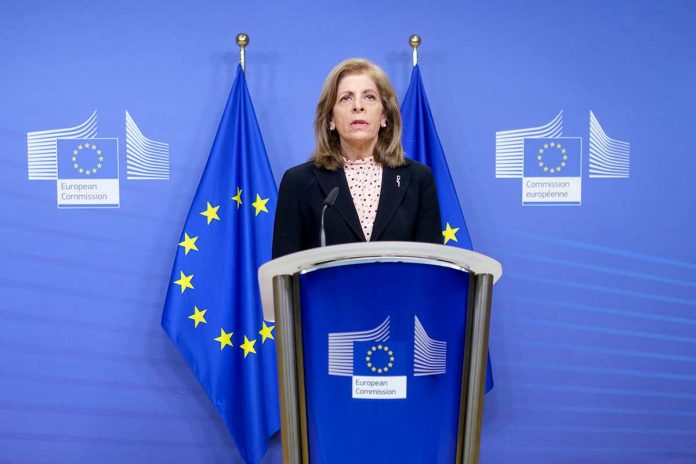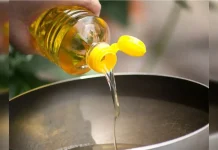
Thierry Monasse/Getty Images
The European Union has taken a first step towards clamping down on the export of coronavirus vaccines after pharmaceutical firm AstraZeneca told the bloc it would deliver far fewer doses than expected in the next months. The EU hasn’t stopped manufacturers from selling to outside nations, including the UK, but has taken a step towards this by requiring vaccine manufacturers to give notice before exporting.
“In the future, all companies producing vaccines against covid-19 in the EU will have to provide early notification whenever they want to export vaccines to third countries,” said Stella Kyriakides, the EU commissioner for health, on 25 January. “Humanitarian deliveries are, of course, not affected by this. The European Union will take any action required to protect its citizens and rights.”
Even before it was clear whether any vaccine would work, many countries signed deals with vaccine-makers to provide set numbers of doses by certain dates. As part of these, countries paid in advance for the preparation of manufacturing facilities.
Advertisement
AstraZeneca was meant to deliver 80 million doses of its vaccine to the EU by the end of March. The EU hasn’t yet approved this vaccine, but is expected to do so soon.
Last week, AstraZeneca told the EU that it would only be able to deliver 31 million doses. According to Reuters, this is because the EU doses are being made at a vaccine factory in Belgium run by a company called Novasep that has faced production problems.
“This new schedule is not acceptable,” said Kyriakides. She sent AstraZeneca a letter in response, asking questions such as how many doses have been made where and to whom they have been sent. “The answers of the company have not been satisfactory so far,” said Kyriakides.
According to Robert Peston, political editor for ITV News, part of the problem is that although AstraZeneca reached initial agreements with several EU countries in June, the European Commission then took over the negotiations and didn’t finalise the contract until August. That left little time to sort out supply issues.
By contrast, the UK finalised its contract with AstraZeneca in May. Peston also says that all these deals were on a “best effort” basis, given the challenge of producing such huge numbers of doses in record time.
AstraZeneca is charging all countries the same price apart from small adjustments based on local costs. The company declined to comment on specific details, but did confirm that it is supplying the vaccine on a non-profit basis. “The vaccine will be supplied at no profit globally for the duration of the pandemic,” a spokesperson for AstraZeneca told New Scientist.
The EU has also ordered 600 million doses of the vaccine created by Pfizer and BioNTech. It received fewer deliveries than expected in the second half of January due to Pfizer upgrading its factory in Puurs, Belgium, but normal supply was due to resume on 25 January, with increased deliveries from 15 February.
Many less wealthy countries around the world have yet to procure any vaccine. There is a global initiative called COVAX, led by the World Health Organization (WHO), which is trying to ensure that poorer countries get a supply. It has raised $6 billion to buy and distribute vaccines.
“More than 39 million doses of vaccine have now been administered in at least 49 higher-income countries,” said Tedros Adhanom Ghebreyesus, director-general of the WHO, on 18 January. “Just 25 doses have been given in one lowest-income country. Not 25 million, not 25,000, just 25.”
Sign up to our free Health Check newsletter for a round-up of all the health and fitness news you need to know, every Saturday
More on these topics:











